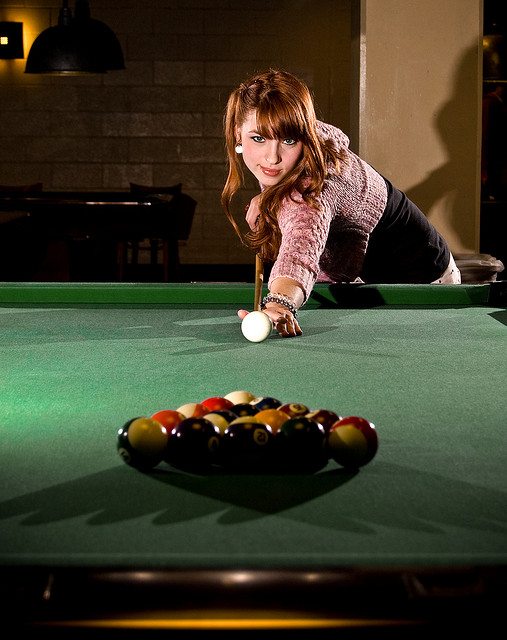Editor’s Letter: ‘Billiards: a blokes’ game?’
Why on earth is billiards considered a lads’ or blokes’ game? And why do men feel the constant need to uphold or protect the ‘laddish’ notion of billiards sports? Every time I walk into a pool hall, I cannot help but notice a male-dominated room of ‘lads’ commenting on that ‘hot’ seminar tutor or that girl who was ‘pretty fit’. There is, of course, the occasional female pool player among her ‘lad’ friends or significant other, but I have yet to see just a group of girls enjoying pool together – other than my own friends.
 Why? Because billiards still exists as a game for men. I used to think that, surely, perceptions of billiards as a “man’s” game is really not such a bad thing. It’s not exactly barring women from the sport. It is only recently that I came to realise that by upholding billiards as a “man’s” sport, billiards has become something more than a sport: it has become a norm of masculine culture. Believe it or not, women, especially professional players, experience the most explicit kind of discrimination. It was only a few years ago that Reanne Evans needed special permission to compete in a West Midlands League because the club had a strict men-only policy.
Why? Because billiards still exists as a game for men. I used to think that, surely, perceptions of billiards as a “man’s” game is really not such a bad thing. It’s not exactly barring women from the sport. It is only recently that I came to realise that by upholding billiards as a “man’s” sport, billiards has become something more than a sport: it has become a norm of masculine culture. Believe it or not, women, especially professional players, experience the most explicit kind of discrimination. It was only a few years ago that Reanne Evans needed special permission to compete in a West Midlands League because the club had a strict men-only policy.
why do men feel the constant need to uphold or protect the ‘laddish’ notion of billiards sports?
My most upsetting experience of gender discrimination was when I was (gently) excluded from several pool games by my guy friends as a girl. The logic was that a girl would drain the fun out of a lads’ game; if a guy were beaten by a girl, that would be embarrassing, and if the girl simply wasn’t any good, the game would not be challenging enough. This shows one kind of discrimination that can arise from a masculine culture of billiards. Being a female billiards player is an incredibly lonely and isolated position; it is hard to find friends or peers to share your love of the game with or to practice against. As a billiards-lover since the age of thirteen, I have become accustomed to playing by myself, simply because there was no one to play against most of the time.
It is not hard to imagine then why women are seemingly “less able” in such sports and why many professional female players are unable to compete in the top snooker or pool leagues. Some women may even see such a gendered notion of billiards as uplifting as they break social boundaries and engage in a “man’s” sport, but the truth of the matter is that it can be more difficult than exalting for women who do really want to engage in such a “man’s” sport.
[divider] flikr.com/jeremyblanchard
[divider] flikr.com/vicksahota

Comments (1)